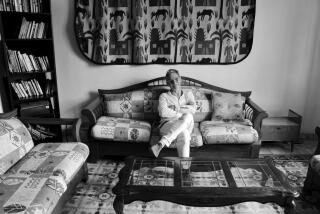The Truth Is Enough
- Share via
Fiction is fiction, there is no way around it, and we now discover that Rigoberta Menchu, the winner of the 1992 Nobel Peace Prize, concocted many of the events in the autobiography that brought her fame and adulation. But that does not lessen our need to learn what happened in the bloody highlands of Guatemala during the Central American wars of the 1980s.
What was just a rumor upon the 1983 publication of “I Rigoberta Menchu” has been documented in a book by American anthropologist David Stoll. Menchu’s book, writes Stoll, “cannot be the eyewitness account it purports to be.”
This charge should not lead anyone to reject the book as a pack of lies. Most of the important elements are true in central fact if not in detail, including the grim recounting of most of the atrocities that Menchu blamed on the Guatemalan army. But this known reality makes the embroidery in Menchu’s words all the more painful, for there was no need to stretch the truth in exposing brutality of the army’s violent suppression of the Mayan Indians.
The book founders on the untruth of some of its most vivid assertions. For instance, the account of the land dispute that is at the core of the autobiography was falsified for political purposes. Her father was not involved in a confrontation with powerful non-Indian landowners who wanted to take the land. Rather, it was a family feud that pitted her father against her uncle. Her brother was not burned alive by the army while the family was forced to watch, as she writes, but was killed by soldiers under different circumstances. Menchu was never the illiterate that the autobiography claims she once was. The nuns who taught her to read and write as a child recall her as a remarkable student.
So, one may ask, why did she lie? Stoll has an answer. “She drastically revised the prewar experience of her village to suit the needs of the revolutionary organization she had joined.” After the initial lies, the international apparatus of human rights activism, journalism and academia pitched in to exaggerate the dire condition of the peasants when a simple recounting of the truth would have been enough.
But it would be a mistake to tarnish in any way the legitimate struggle of the Mayans to achieve equality. Their goal should not be weighed on the account of a frail witness burdened by ideological zeal.
More to Read
Sign up for our Book Club newsletter
Get the latest news, events and more from the Los Angeles Times Book Club, and help us get L.A. reading and talking.
You may occasionally receive promotional content from the Los Angeles Times.









